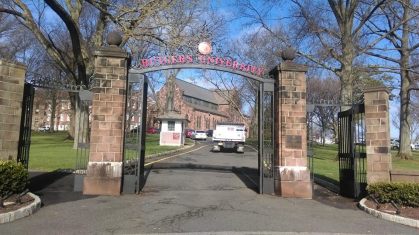
The three-day conference attracted about 150 playful people; mostly academics and researchers, but a few clowns as well (literally). The conference kicked off on Thursday with a keynote address by Cathy Salit, a corporate coach and author, who uses her experience as a performer to open up creative-thinking in corporate settings. She shared interesting information about play (or the lack thereof) in the corporate world and ran us through exercises in role playing and pretend. At the end she encouraged us to make funny faces at other conference goers at least once a day, and to attend workshops that were out of our comfort zone.
I did not make too many faces at people, but I did change up the workshops I was planning to attend. I participated in workshops on play and movement, playful reading, playground design, and after-school development programs for youth.
The next day offered another incredible keynote by Dr. Lenora Fulani, the co-founder and director of the All-Stars Project, a national nonprofit organization that uses play and performance to help inner city youth develop and grow. In addition to providing play and performance opportunities for youth, the organization offers play and performance opportunities for its sponsors and other adults. It was inspiring to learn what a powerful impact play can make in the lives of children—and adults. As one of the young alumni of the program stated, “Play is a tool in life… it helps you see things differently.”
Afterwards I, again, moved out of my comfort zone to do workshops on play and neurological patterns, play and politics, play and language acquisition, and a screening of ‘The Land,’ a 24-minute documentary on an Adventure Playground in Wales.
The final day of the conference was spent in a ‘Playboratory,’ a two-hour session on using play, performance and movement to explore our play muscles and tap into creativity and communication and concluded with an address on how fairytales, magic and pantomime have contributed to play throughout generations.
I got a lot of inspiration—and some practical tools to use—from the conference. I also got a big shot of confidence in the programs that we offer at Fairytale Town. The physical, artistic and literary experiences we offer children and their families are indeed important. The research these TASP-ians conduct reinforces that. Children AND adults learn much by trying on different characters, looking at things from different perspectives, and moving in different settings and directions.
In addition, I am now much more open to making playful faces at people as I go about my day. And you know what? People respond in kind!